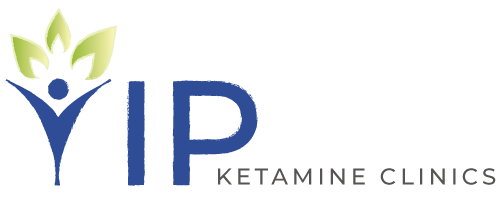Depression has always been a difficult illness to treat. In the past, there was a heavy reliance solely on antidepressant medication to address and help alleviate symptoms. Time and time again, this approach has fallen short on getting patients back on track to a more normal state.
Now the focus has shifted, and different avenues are being explored where multiple treatment options are combined to achieve better results. This approach does not work with all medications or procedures for depression, but ketamine is one drug where including other treatments provides longer-lasting depression relief.
Ketamine has been considered one of “the most significant advance[s] in mental health in more than half a century,” as quoted by the Washington Post. On its own, ketamine has been shown to be an effective treatment for depression. New studies are also recognizing that combining ketamine with other treatment options can produce a powerful approach for sustained improvement and recovery.
The development of depression is partially attributed to faulty ways of thinking and learned patterns of negative behavior. Psychotherapy helps to break the cycle of distorted perception and incorporates ways of coping. When it comes to treatment-resistant depression, changing thinking patterns is not as easy as the brain is not functioning as it should. One way ketamine works is by promoting rapid growth of neuronal processes and the formation of synapses which is foundational to learning. By combining psychotherapy and ketamine, a harmonious relationship exists that promotes not only reduced depression symptoms but new ways of thinking.
Individually, ketamine and transcranial magnetic stimulation (TMS) offer patients relief from treatment-resistant depression. When combining these two treatment methods, patients experience a more rapid onset of relief from the ketamine infusions, coupled with the longer-term benefits of TMS. By utilizing both TMS and ketamine, fewer TMS sessions are needed and patients are more likely to adhere to the ketamine protocol leading to a more effective recovery from depression.
Outside of a clinical setting, there are many other beneficial approaches to combating depression that, when coupled with ketamine, increases the efficacy of the drug. When a person is depressed, it is very difficult to focus on self-care. Ketamine can help alleviate symptoms quickly, making it more palatable to focus on activities that are naturally mood-boosting. This will help increase the benefits of the ketamine treatment as well as help the individual develop good daily habits. Some good self-care practices to part-take in are:
- Meditation and mindfulness
- Journaling
- Exercise
- Incorporating a good diet
- Getting enough sleep
When it comes to the ketamine portion of these equations, there are ways to help enhance this part of the process as well. By utilizing a few tips to get the most out of the infusions, the overall benefits can be much greater.
- Let Go. Take the infusion time as an opportunity to relax and appreciate how it feels.
- Ignore Distractions. Bring an eye mask to block out any unwanted light and headphones for noise distractions. These can help make the experience more restorative.
- Bring a Blanket. Medical settings tend to be cold. Bring a blanket or cozy clothing to help regulate temperature. This tends to create a safer more relaxed environment.
- Enjoy the Day. After the infusion, take the remainder of the day to recover and provide a break from any obligations.
Contact VIP Ketamine Clinics

